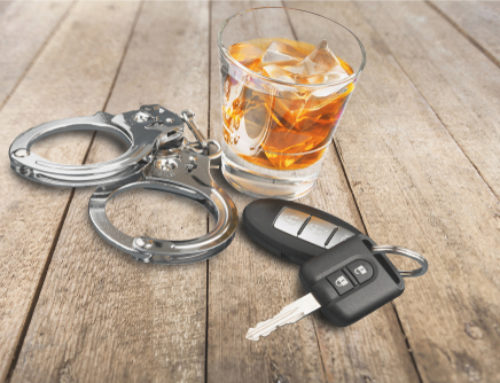No two driving under the influence (DUI) cases are the same. While a conviction requires proof of the same basic elements in every case, the specific facts involved can drastically impact the strength of the prosecution’s case. They are key to determining what DUI defenses are available.
These 13 Facts Could Help Protect You Against a Conviction for DUI, Extreme DUI, or Aggravated DUI in Arizona
Are you facing a DUI, extreme DUI, or aggravated DUI charge in Arizona? If so, here are 15 facts that could determine the outcome of your case:
1. You Were Not in “Actual Physical Control” of Your Vehicle
Under Arizona law, to be convicted of DUI, the prosecution must prove that you were impaired while “in actual physical control of a vehicle.” If you were asleep in your car, if you were parked, or if you did not have the keys, then the prosecution may not be able to establish a case for DUI.
2. You Were Not Under the Influence of Alcohol
In Arizona, there are two ways that you can be found guilty of DUI. The first is by proof that you were “under the influence” of alcohol. This does not require proof of a blood alcohol concentration (BAC) of 0.08 or above, but it does require proof that you were cognitively and/or physically impaired due to consuming alcohol. If prosecutors cannot prove that you were “under the influence” and reliable evidence of your BAC is not available, you may be able to avoid a conviction.
3. Your Blood Alcohol Concentration (BAC) was Not 0.08 or Above
The second way you can be found guilty of DUI is by proof that your BAC was 0.08 or above. If your BAC was below 0.08 (or your BAC test results are unreliable) and there is insufficient evidence to prove that you were “under the influence,” then you should not be found guilty in court.
4. Your Breath or Blood Sample was Contaminated
To be admissible in Arizona state court, BAC results need to be reliable. If it is possible that your breath or blood sample was contaminated, then it should not be used against you.
5. Your Breath or Blood Test Results are Invalid
In addition to contamination, other issues such as improper calibration and faulty test administration can also render breath and blood test results invalid. If your test results are invalid for any reason, then they cannot serve as reliable evidence in court.
6. The Arresting Officer Improperly Administered the Field Sobriety Tests (FSTs)
If you consent to the field sobriety tests (FSTs), to use your performance against you, the prosecution must be able to show that the arresting officer administered these tests properly. If the administration of the FSTs was improper, then the tests cannot provide an accurate indication of your level of impairment (if any).
7. Your Clothing, The Weather, or Other Factors Influenced Your FST Performance
In addition to improper administration, various other issues can impact FST performance as well. From the weather (i.e., if it had recently rained) to your clothing (i.e., if your shoes made it difficult to balance), several factors besides intoxication can impair your ability to balance or to walk steadily in a straight line and turn.
8. The Police Stopped You Without Reasonable Suspicion
If the arresting officer did not have a valid reason for pulling you over, then this lack of “reasonable suspicion” may mean that all evidence obtained during and after your traffic stop is inadmissible in Arizona state court.
9. The Police Arrested You Without Probable Cause
Likewise, if the officer arrested you without sufficient “probable cause,” then any evidence obtained after your arrest may be inadmissible under the Fourth Amendment’s protection against unreasonable searches and seizures.
10. The Police Did Not Read Your Miranda Rights in Time
The police are required to read your Miranda rights before conducting a custodial interrogation. If you were interrogated in custody without being read your rights, any statements you made in response to police questioning might be inadmissible in court.
11. Your BAC was Not 0.15 or 0.20 or Above
If you have been charged with extreme DUI, the prosecution will need to prove that your BAC was 0.15 or above to convict you. A super extreme DUI requires proof of a BAC of 0.20 or above.
12. Your Passenger was Not Under the Age of 15
If you have been charged with aggravated DUI based on having a minor passenger in your vehicle, then proving that the minor was at least 15 years of age could protect you against an aggravated DUI conviction.
13. Your Driving Privileges have Been Restored
Similarly, if you were charged with aggravated DUI on the basis that your driver’s license had been suspended, revoked, or restricted, demonstrating that this is inaccurate may protect against a conviction for aggravated DUI.
Discuss Your Case with a DUI Lawyer in Tempe, AZ or Phoenix, AZ
The Tempe and Phoenix DUI attorneys at The Weingart Firm provide experienced legal representation for individuals facing DUI charges. If you have been arrested, call 480-405-7922 or contact us online to schedule a free and confidential consultation.






